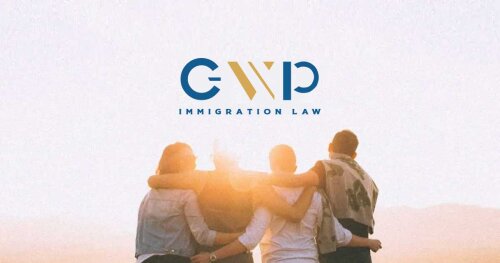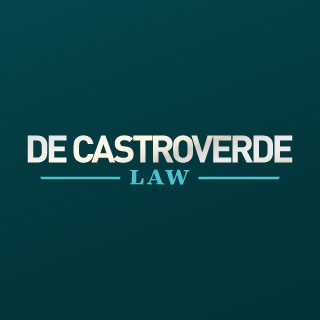Best Asylum Lawyers in Las Vegas
Share your needs with us, get contacted by law firms.
Free. Takes 2 min.
List of the best lawyers in Las Vegas, United States
About Asylum Law in Las Vegas, United States
Asylum is a form of protection available under United States federal immigration law to people who are physically present in the United States or at a port of entry and who fear returning to their home country because of persecution or a well-founded fear of persecution. Asylum is granted based on membership in a protected ground - race, religion, nationality, political opinion, or membership in a particular social group. Although asylum decisions are made under federal law, people living in Las Vegas use local immigration courts, local USCIS offices, and local support services to file and pursue claims.
There are two main pathways to seek asylum - affirmative and defensive. If you are not in removal proceedings you generally file an affirmative asylum application with U.S. Citizenship and Immigration Services. If you are in removal proceedings, you can request asylum defensively before an immigration judge. Las Vegas falls within the Ninth Circuit for appeals and legal precedent, and the immigration court and local legal service providers in Las Vegas handle much of the local casework.
Why You May Need a Lawyer
Asylum law is complex and fact-intensive. A lawyer can help you in several common situations:
- Determining eligibility - a lawyer can assess whether your fear of persecution fits one of the protected grounds and whether you face bars to asylum.
- Meeting deadlines - asylum applicants generally must file within a one-year period after arrival unless an exception applies. Missing deadlines can have serious consequences.
- Preparing evidence - asylum claims depend heavily on credible, well-documented evidence. Lawyers help gather country condition reports, witness statements, medical or psychological evaluations, police reports, and corroborating documents.
- Navigating interviews and hearings - USCIS interviews and immigration court hearings require legal strategy, credibility preparation, and procedural familiarity. Lawyers prepare clients and represent them in court.
- Handling detention and removal proceedings - detained individuals face urgent deadlines and bond hearings. A lawyer can appear on your behalf or help seek release.
- Managing appeals and complex legal issues - if your claim is denied you may need to appeal to the Board of Immigration Appeals or federal courts. Lawyers draft appeals, identify legal errors, and present new evidence when permitted.
- Avoiding pitfalls - incorrect procedures, missing translations, or poor documentation can lead to denial. A lawyer reduces these risks and can advise about related immigration options.
Local Laws Overview
Asylum itself is governed by federal law, so state and local laws in Nevada do not create asylum protections. However, local policies and services in Las Vegas affect how asylum seekers access the immigration system and daily life while their cases proceed. Key local aspects to know:
- Federal jurisdiction - federal agencies control asylum decisions. USCIS, Immigration and Customs Enforcement, and the Executive Office for Immigration Review administer the asylum process in Las Vegas.
- Local courts and appeals - Las Vegas cases are heard by the local immigration court. Appeals go to the Board of Immigration Appeals and federal circuits - Las Vegas is in the Ninth Circuit, which issues binding precedent on many immigration issues.
- Law enforcement cooperation - local police and county agencies in the Las Vegas area have different policies on cooperation with federal immigration authorities. Those policies can affect how and when immigration enforcement occurs locally.
- Access to services - state and local programs for medical care, education, and social services may be available to some noncitizens and not to others. Eligibility often depends on immigration status and local program rules.
- Local legal support - Las Vegas has community organizations, law school clinics, and nonprofit legal services that help asylum seekers with advice, representation, and social services.
Because local practices and available resources change, check with a local immigration attorney or trusted nonprofit for the most current information.
Frequently Asked Questions
What is asylum and who can apply?
Asylum is protection granted to people who are already in the United States or at a port of entry and who can show they were persecuted or have a well-founded fear of persecution in their home country because of race, religion, nationality, political opinion, or membership in a particular social group. Both adults and children can apply. Eligibility is decided under federal immigration law, not state law.
How do I apply for asylum in Las Vegas?
If you are not in removal proceedings, you file Form I-589, Application for Asylum and for Withholding of Removal, with U.S. Citizenship and Immigration Services. If you are in removal proceedings, you should express your fear of return to the immigration judge and request defensive asylum as part of your case. Local legal service providers in Las Vegas can help prepare and file applications and prepare you for interviews or hearings.
What is the one-year filing rule?
Generally, you must file an asylum application within one-year of your last arrival to the United States unless you meet an exception. Exceptions may apply for changed circumstances in your country or extraordinary circumstances that prevented timely filing. Because this deadline is strict and exceptions are fact-specific, consult an attorney right away if you think you may miss the deadline.
What is the difference between affirmative and defensive asylum?
Affirmative asylum is when you apply to USCIS for asylum while not in immigration court proceedings. USCIS will interview you and decide the case. Defensive asylum is when you ask an immigration judge for asylum as a defense against removal when you already face deportation. Both paths require evidence and credibility, but procedures, timelines, and forums differ.
Can I apply for asylum if I am detained?
Yes. If you are detained and express a fear of return, you may receive a credible fear screening. If you pass the credible fear interview, your case generally proceeds to an immigration court for a full hearing. Detained cases are time-sensitive and often require immediate legal help to request bond, to prepare credible fear statements, and to pursue asylum effectively.
What kind of evidence will support my asylum claim?
Supportive evidence can include personal declarations detailing persecution or threats, witness statements, medical or psychological reports documenting injuries or trauma, police reports, arrest or court records, country conditions reports showing risks faced by people like you, media coverage, and documentation proving membership in a particular social group. Corroborating evidence strengthens credibility, but in cases where evidence is hard to obtain, a detailed and consistent personal statement and credible testimony remain crucial.
Can I work while my asylum application is pending?
Asylum applicants may seek employment authorization, but rules and timelines can change. Historically, applicants could apply for work authorization after a waiting period once the asylum application was pending, subject to certain conditions. Because processing rules and eligibility timelines may vary, consult a local immigration attorney or accredited representative about current work authorization rules and how to apply for an Employment Authorization Document.
Can I travel outside the United States while my asylum application is pending?
Travel outside the United States while an asylum application is pending generally risks being treated as abandonment of the asylum application, unless you have a valid advance parole document issued for a specific purpose. Leaving the U.S. may also pose safety risks if you travel to the country from which you sought protection. Talk with a lawyer before making travel plans.
What happens if my asylum claim is denied?
If USCIS denies an affirmative asylum application and you are not in lawful status, you may be referred to immigration court where you can pursue defensive asylum. If an immigration judge denies your defensive asylum claim, you can appeal to the Board of Immigration Appeals and, after that, to federal courts. Denials can carry significant consequences, including removal. An attorney can help assess options for appeal, reopening, or alternative forms of relief.
How long does the asylum process take?
Processing times vary widely. Some affirmative cases may be decided within months, while others can take years. Immigration court cases often take longer. Delays depend on backlog, whether you are detained, the complexity of your claim, and whether appeals are filed. Because lengthy waits are common, plan for an extended process and secure local support during that time.
Additional Resources
Governmental bodies and federal agencies involved in asylum matters include U.S. Citizenship and Immigration Services, Immigration and Customs Enforcement, and the Executive Office for Immigration Review. The Board of Immigration Appeals handles appeals from immigration judges, and federal courts handle further challenges.
Local and national organizations that often assist asylum seekers in Las Vegas include nonprofit legal services, law school clinics, and civil rights groups. Examples of the types of organizations to contact are:
- Local legal aid and pro bono immigration programs that offer consultations and representation.
- Law school immigration clinics that provide supervised legal help and court representation.
- National and state civil rights organizations that monitor local immigration policies and provide referrals.
- Community-based groups that help with housing, medical care, language access, and mental health services for asylum seekers.
When seeking help, look for accredited representatives, attorneys licensed to practice immigration law, or legal clinics affiliated with reliable institutions. Avoid anyone who promises guaranteed results or asks for large fees up front without a written agreement.
Next Steps
If you need legal assistance with an asylum matter in Las Vegas, consider the following practical next steps:
- Seek a consultation with an experienced immigration attorney or an accredited nonprofit representative as soon as possible. If cost is a concern, ask about sliding-fee options, pro bono programs, and law school clinics.
- Gather and preserve evidence - identity documents, travel records, statements about incidents, medical records, police reports, and any other documentation that supports your claim. Keep originals and make copies. Obtain certified translations of documents not in English.
- Write a detailed personal declaration describing the persecution you fear - dates, places, actors involved, and any threats or incidents. A lawyer can help shape this into an effective asylum statement.
- Be mindful of deadlines - the one-year filing deadline and any court dates are strict. If you are detained or have a court hearing, seek counsel immediately.
- Use local resources - contact community organizations for social services, mental health support, interpretation, and legal referrals. Law school clinics and nonprofit organizations can often provide free or low-cost help.
- Protect your safety and privacy - be cautious about sharing sensitive information, and follow attorney advice about communications with immigration authorities.
Getting qualified legal help early improves your chances of presenting a clear, well-documented claim. If you are unsure where to start, reach out to a local legal aid office, law school clinic, or reputable nonprofit in Las Vegas for an initial assessment of your options.
Lawzana helps you find the best lawyers and law firms in Las Vegas through a curated and pre-screened list of qualified legal professionals. Our platform offers rankings and detailed profiles of attorneys and law firms, allowing you to compare based on practice areas, including Asylum, experience, and client feedback.
Each profile includes a description of the firm's areas of practice, client reviews, team members and partners, year of establishment, spoken languages, office locations, contact information, social media presence, and any published articles or resources. Most firms on our platform speak English and are experienced in both local and international legal matters.
Get a quote from top-rated law firms in Las Vegas, United States — quickly, securely, and without unnecessary hassle.
Disclaimer:
The information provided on this page is for general informational purposes only and does not constitute legal advice. While we strive to ensure the accuracy and relevance of the content, legal information may change over time, and interpretations of the law can vary. You should always consult with a qualified legal professional for advice specific to your situation.
We disclaim all liability for actions taken or not taken based on the content of this page. If you believe any information is incorrect or outdated, please contact us, and we will review and update it where appropriate.














